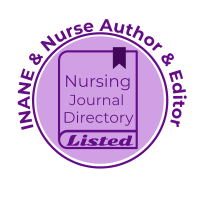Attitudes and Acceptability of Organ and Tissue Donation Registration in the Emergency Department: A National Survey of Emergency Nurses
DOI:
https://doi.org/10.29173/cjen140Abstract
Worldwide, there is a shortage of organs for transplantation. The number of people listed on organ donation registries can possibly be increased by promoting organ donation registration in emergency departments. We administered a national survey to assess emergency nurses’ attitudes and feelings on offering patients’ information on registering to become an organ donor in the emergency department, as well as an immediate opportunity to register. We had 130 (10.2%) responses. Of these, 61.5% of nurses feel that the emergency department is an acceptable location to promote organ donation registration. Additionally, 58.4% feel that the emergency department is an appropriate setting to offer patients and visitors an immediate opportunity to register as an organ and tissue donor while they await medical care. We identified several facilitators and barriers to a potential intervention to promote organ donation registration in the emergency department, such as public importance of increasing donation rates, the recognition of patients’ willingness to help others, and strong institutional donation culture. Some barriers were also identified, such as time constraints and departmental efficiency and flow. We also found that 80% of nurses report to be personally registered as organ donors. This study reveals that Canadian emergency nurses are very engaged and supportive of organ donation and the majority feel that the ED is an appropriate venue to promote organ donation. However, the specific mechanism by which patients are approached by emergency department staff regarding organ donation registration remains unclear.
Downloads
Published
How to Cite
Issue
Section
License
Copyright (c) 2021 Michael Hickey

This work is licensed under a Creative Commons Attribution 4.0 International License.
The Canadian Journal of Emergency Nursing is published Open Access under a Creative Commons CC-BY 4.0 license. Authors retain full copyright.



